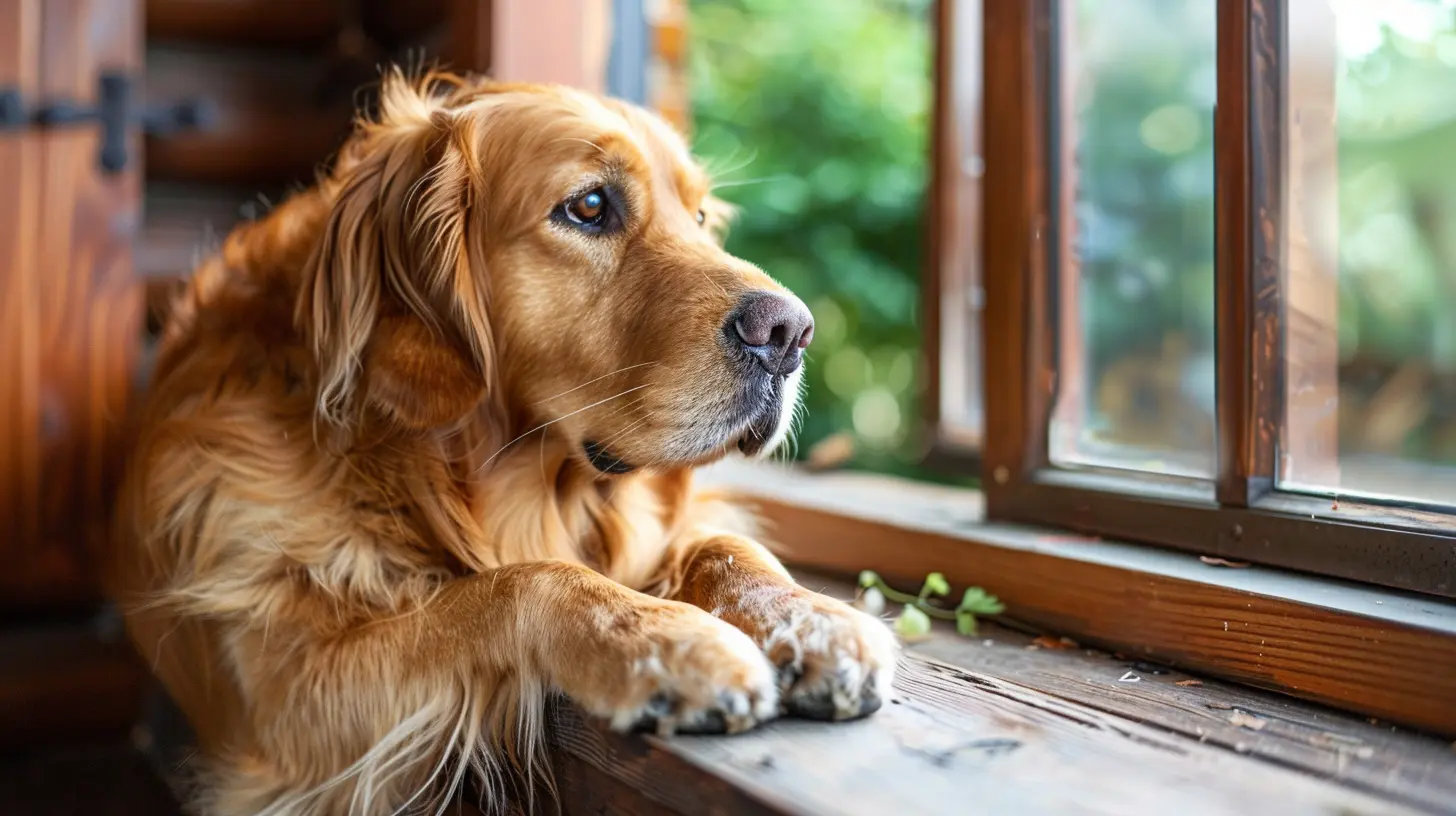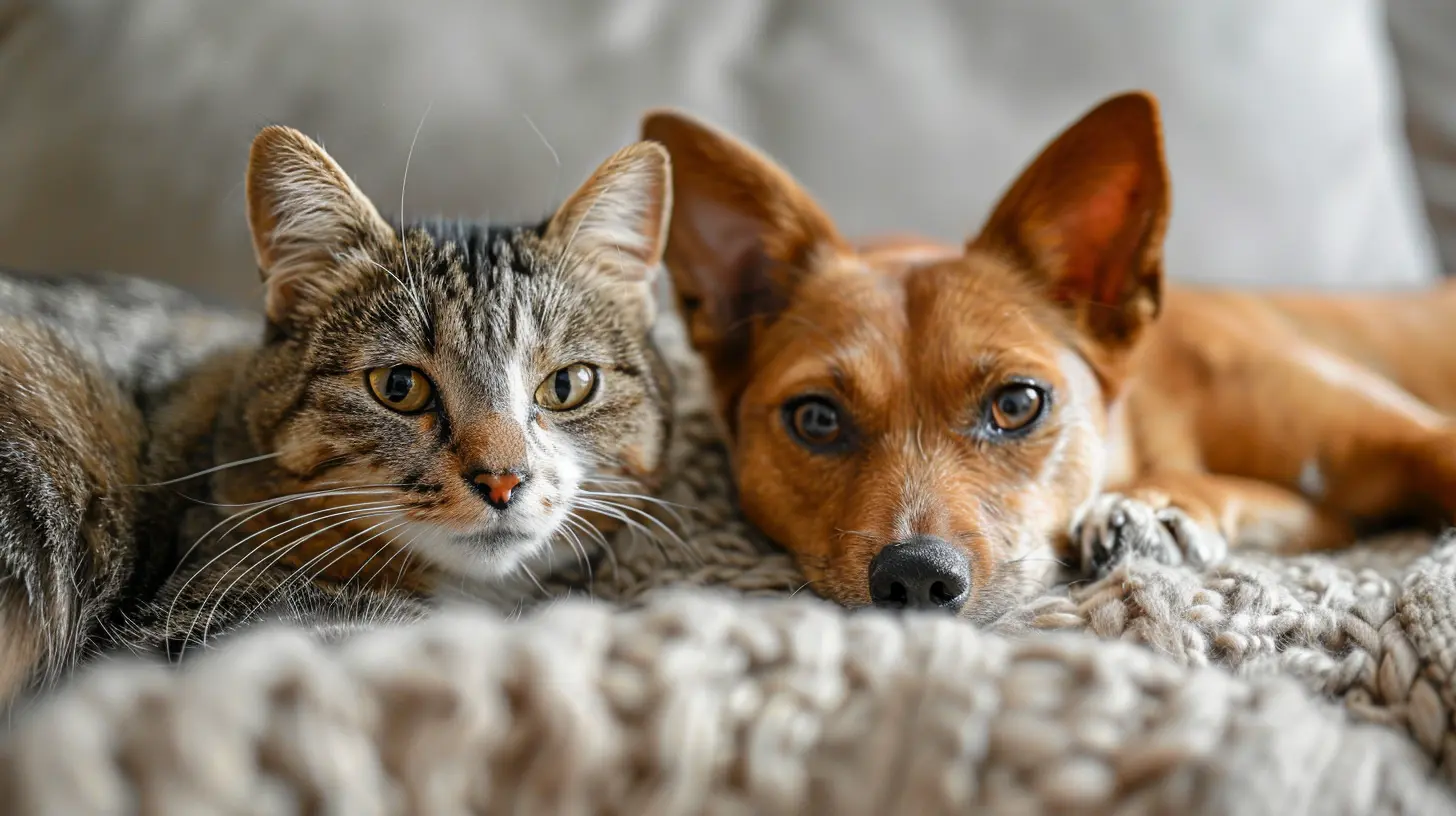Staging Your Home for Pet Owners Without Alienating Non-Pet Buyers
16 November 2025
Selling a home is all about making a great first impression. But if you're a pet owner, staging your home can be a little tricky. You want to create a warm and welcoming space for potential buyers, but not everyone is a fan of furry friends. Some buyers may have allergies, concerns about cleanliness, or simply not be pet lovers.
So, how do you stage your home in a way that appeals to both pet owners and non-pet buyers? It’s all about striking a balance. This guide will walk you through the best ways to showcase your home while minimizing pet-related distractions. 
Why Staging Matters for Pet Owners
Home staging is a crucial step in selling any property. It helps potential buyers visualize themselves living in the space. But when pets are involved, the process requires extra attention. Even though nearly 70% of U.S. households have a pet, a noticeable pet presence can still turn off some buyers.The goal is to create a neutral, inviting environment. That means reducing pet odors, hiding pet-related clutter, and ensuring your home looks fresh, clean, and well-maintained. 
Step 1: Deep Clean Everything (Yes, Everything)
Before you even think about listing your home, give it a thorough deep clean. Pet hair, dander, and odors can linger even if you don’t notice them anymore. Here’s what to focus on:Tackle Pet Odors First
Pet odors are one of the biggest deal-breakers for buyers. You may be used to the smell, but new visitors will notice it immediately. Here’s how to get rid of unwanted pet odors:- Steam clean carpets and rugs – Pet urine, dander, and fur can trap odors in fabric.
- Wash pet bedding and toys – Anything your pet regularly uses should be washed or stored away.
- Use air purifiers – These help eliminate pet dander and improve air quality.
- Deodorize with natural scents – Baking soda, vinegar, and activated charcoal can help neutralize odors.
Remove All Pet Hair
Pet hair has a sneaky way of collecting in every corner. Even if you vacuum daily, it’s probably still there.- Use a lint roller on fabric surfaces like couches and chairs.
- Invest in a high-powered vacuum designed for pet hair.
- Check air vents and ceiling fans – Pet fur can accumulate in places you wouldn't expect. 
Step 2: Put Away Pet Items
You love your pet, but potential buyers don’t want to see reminders of them everywhere. This doesn't mean your home has to feel like a pet-free zone, but minimizing pet-related clutter can help buyers focus on the house itself.What to Store Away:
- Food bowls and water dishes (especially if they look worn or dirty).- Pet toys scattered across the floor.
- Unsightly litter boxes or training pads.
- Scratching posts or bulky pet furniture.
Instead, keep pet items neatly stored in a designated space. If your home has a pet-friendly feature like a built-in pet washing station, highlight it while keeping the area spotless. 
Step 3: Repair Any Pet Damage
Even the most well-behaved pets leave behind signs of wear and tear. Buyers will notice scratches, stains, or chewed-up corners, and these small damages can signal that a home hasn’t been properly maintained. Take a close look at the following areas:Fix Scratches and Stains
- Hardwood Floors: Use a wood filler or refinishing product to repair scratch marks.- Walls and Doors: Sand down and repaint any areas where pets have scratched or chewed.
- Carpets and Rugs: If stains can't be removed, consider replacing the carpet in high-traffic areas.
Check Outdoor Spaces
Does your backyard show signs of a digging dog? Are there patches of dead grass from pet activity? Make minor landscaping fixes to ensure your yard looks well-kept and inviting.Step 4: Stage with a Neutral Aesthetic
The goal is to create a space where anyone—pet owner or not—can envision themselves living. This means keeping décor simple, clean, and inviting.Opt for Fresh Scents and Greenery
After cleaning up pet odors, introduce fresh, neutral scents. Avoid strong air fresheners, as they can make buyers suspicious you’re masking smells. Instead, use:- Fresh flowers or houseplants.
- Scented candles with mild, natural scents like lavender or citrus.
- A bowl of lemons or fresh herbs in the kitchen.
Create a Cozy, Pet-Friendly Vibe (Subtly)
If your home has pet-friendly perks (like a mudroom with a pet washing station), subtly highlight them. Consider adding a neatly staged plush pet bed in the corner or a tasteful piece of artwork featuring animals.The key is subtlety—avoid overwhelming buyers with too many pet-related décor elements.
Step 5: Plan for Showings
Once your home is staged, you’ll need to prepare for showings in a pet-conscious way. This involves removing any immediate pet distractions that could turn off buyers.Relocate Pets During Showings
Not every buyer is comfortable around animals. If possible, arrange for your pets to stay with a friend, neighbor, or pet daycare during open houses and private showings.For last-minute showings, be prepared with a plan:
- Dog owners – Take them for a walk or a car ride during the showing.
- Cat owners – Place them in a travel crate away from potential buyers.
Do a Final Clean-Up Before Each Showing
- Vacuum one last time to catch stray pet hair.- Empty litter boxes and take out the trash.
- Open windows for fresh air circulation.
Step 6: Market Your Home Strategically
If your home is particularly pet-friendly (think built-in pet nooks or secure backyard fencing), use it to your advantage. Mention pet-friendly features in your listing, but in a way that doesn’t alienate non-pet buyers.How to Word It:
Instead of saying:"This home is perfect for pet lovers!"
Try:
"Spacious backyard with a fully fenced area, great for outdoor enjoyment."
This way, non-pet buyers see the appeal without feeling like the space was specifically designed for pet owners.
Final Thoughts
Staging your home as a pet owner doesn’t mean hiding the fact that you have pets—it just means presenting your home in the best possible light for everyone. With deep cleaning, minor repairs, and strategic staging, you can create a welcoming space that appeals to both pet lovers and those without pets.Taking these extra steps can make a big difference in how buyers perceive your home, helping you sell faster and possibly for a higher price. After all, the goal is to make buyers feel at home—whether they have a pet or not!
all images in this post were generated using AI tools
Category:
Home StagingAuthor:

Lydia Hodge
Discussion
rate this article
1 comments
Tilly McElhinney
Great tips! Staging a home to appeal to both pet lovers and non-pet owners can feel tricky, but with a little creativity, it's totally doable! Embrace the fluff while keeping it fresh. Your space can shine for everyone—pets included! Happy staging! 🐾✨
November 16, 2025 at 8:48 PM

Lydia Hodge
Thank you! Finding that balance is key, and I'm glad you found the tips helpful. Happy staging! 🐾✨


